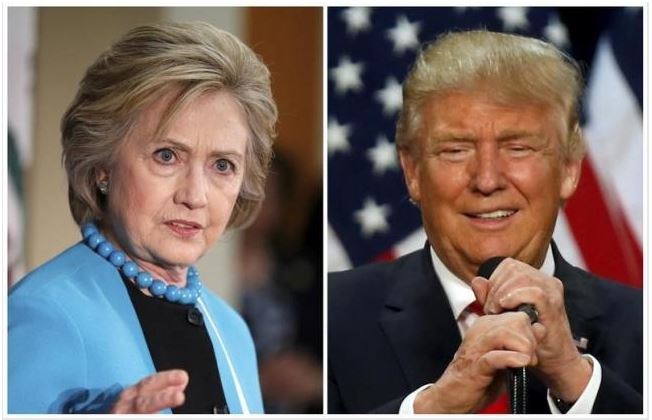If Hillary Clinton or Donald Trump is elected president in November, what kind of leader will either of them make? Wendy Capland, a leadership coach who’s been working with top executives for more than 30 years had examined both of their leadership styles and come up with some answers. A while back, I wrote a column from an interview with Capland, and as a follow-up we decided she would coach me and that I would write about it.
After many years of coaching executives at companies large and small as well as startups, Capland has observed four distinct styles leaders follow as they deal with challenges or pursue goals. “Most of us are a mix of styles, but like being left-handed or right-handed, most people have styles they tend to use most often,” she explains.
Here is a very brief description of each:
1. Envisioner
Envisioners think in terms of big visions. They look into the future, make big plans, and are good at thinking outside the box.
2. Analyzer
Analyzers are organized, systematic and fact-oriented. If you are data-driven, chances are you’re an analyzer.
3. Feeler
For feelers, building relationships is the top priority. They’re perceptive, intuitive, and great at connecting with others.
4. Doer
Doers rarely waste time over-analyzing or being indecisive. They are results-oriented and high energy leaders.
None of these styles is better or worse than the others, Capland stresses–they’re just different approaches leaders use to accomplish their goals. Here’s a fuller description of each of these styles, some professions that work for each, and a link to a test where you can learn your own combination of styles. (I myself am an Analyzer in normal situations and a Doer when faced with challenges, with a lot of Envisioner thrown in.)
Naturally enough, Capland wondered which leadership styles the two presidential nominees display and what that might tell us about the kind of president each would be. Analyzing news stories (and in Clinton’s case, a personal encounter), Capland determined the dominant leadership style for each candidate.
Hillary Clinton is a Feeler.
Although Hillary Clinton is not as charismatic a public speaker as her husband (at least to my mind) people who’ve met her in person describe her as extremely warm and friendly. That was Capland’s experience as well when they met during a photo shoot.
“She walked into the room like she was meeting her girlfriends,” Capland recalls. “She exclaimed, ‘Hi, I am so happy to be here!’ It seemed authentic. She was more personable, kinder, and more approachable than I ever would have imagined. She took the time to ask how I was. She put her hand on my arm, which is a typical Feeler thing to do.” The two bonded in a conversation about James Steinberg, now dean of Syracuse University and former U.S. Deputy Secretary of State. It turns out that Steinberg had grown up next door to Capland. “I knew him as ‘Jimmy,'” she says.
Capland further notes that Feeler-oriented themes such as gratitude and emotion tend to show up in Clinton’s speeches, and that she once answered a question from an audience by saying, “It all starts from home and your heart and who you are as a person”–a classic Feeler statement.
What does that tell us about her potential presidency? “Every style has its strengths and also weaknesses that can come from an overused strength,” Capland says. “If I’m right about Hillary she’ll have a great ability to develop relationships. But feelers can become too emotionally involved, too focused on relationships at the potential exclusion of analyzing things thoroughly.” There’s also a risk for Feelers of taking things too personally, she adds.
To be as effective as possible as president, Clinton needs to recruit advisors and other team members whose strengths complement her weaknesses, recruiting people who are good at analysis, quick to take action, and/or good at looking at the big picture.
Donald Trump Is a Doer.
“Trump’s primary style is to speak or do first, and clean up the mess if there is one afterward,” Capland says. “There is example after example of him blurting out an opinion or a thought in the moment, without taking time to think it through carefully the way an Analyzer would. Because Doers are primarily interested in moving things forward quickly, they’d rather take quick action and then deal with the consequences later if necessary.
No style is better or worse than the others, Capland says, and Doers can be extremely effective leaders. “He’ll have a great ability to make changes and implement programs quickly. But he may be moving so fast that he may not take time to analyze things carefully and look at all the different perspectives.”
With that in mind, she says, Trump should surround himself with people who are good at analysis, and also Envisioners who can help him create a vision that people will be willing to follow. And he’ll need Feelers as well, she says, to make sure he isn’t destroying relationships along the way.


